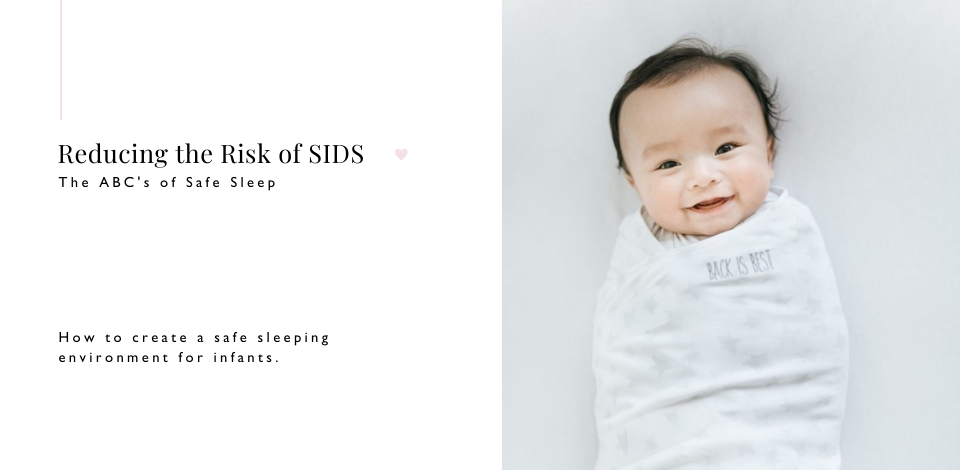Reduce the Risk Of SIDS
Jump to Section

Did you know that SIDS is the number one cause of sudden, unexpected death in healthy Canadian infants under the age of one?
The majority of SIDS deaths occur between two and four months of age, with ninety percent occurring in the first six months. Let's take a moment to review Safe Sleep Practices that will give you peace of mind and help reduce the risk of SIDS.
SIDS Risk Reduction Strategies
To help reduce the risk of SIDS, The American Academy of Pediatrics and The Canadian Paediatric Society recommend practicing the ABC’s (Alone, on their Backs, and in a Crib or bassinet) of safe sleep from day one of your newborn’s life.More specifically, keep reading below to find out what you can do to reduce your infant’s risk of SIDS.
Back to Sleep
Always place your baby on their back for both daytime and night time sleep. They should be placed in a certified standard crib, with a firm mattress. At around five months of age, many babies begin to roll over. Note that once your baby starts rolling and choosing their own sleep position, you don’t need to keep turning them over onto their back.Create a Safe Sleep Environment
The safest place for your baby to sleep is in a crib or bassinet that meets current Canadian regulations. The crib or bassinet should be in your room for the first six months of baby’s life. All you need in the crib is a firm mattress with a fitted crib sheet. The crib should be free of toys, pillows, blankets, stuffed animals, bumper pads, positioners and any other soft objects. In terms of dressing baby, you need a sleeper, and that’s it. Once the weather turns colder, you can add a sleep sack to keep baby warm.Share Your Room, Not Your Bed
As mentioned above, it is safest to place your baby to sleep in a crib or bassinet next to your bed for the first six months. Bed sharing, which is when you share a sleeping surface with your infant, increases the risk of SIDS. Adult beds, couches and other soft sleeping surfaces are not safe sleeping spaces for infants.No Smoking, Please
Smoking during pregnancy and after your baby is born is one of the greatest risk factors for SIDS. It is strongly recommended that you make your home and your vehicles smoke-free. That goes for any environment that your baby spends time, includes homes of relatives and other care givers.For more information on SIDS, visit the Baby’s Breath website. Baby’s Breath is Canada’s only national foundation focused on SIDS, and is dedicated to reducing all sudden and unexpected infant deaths.

